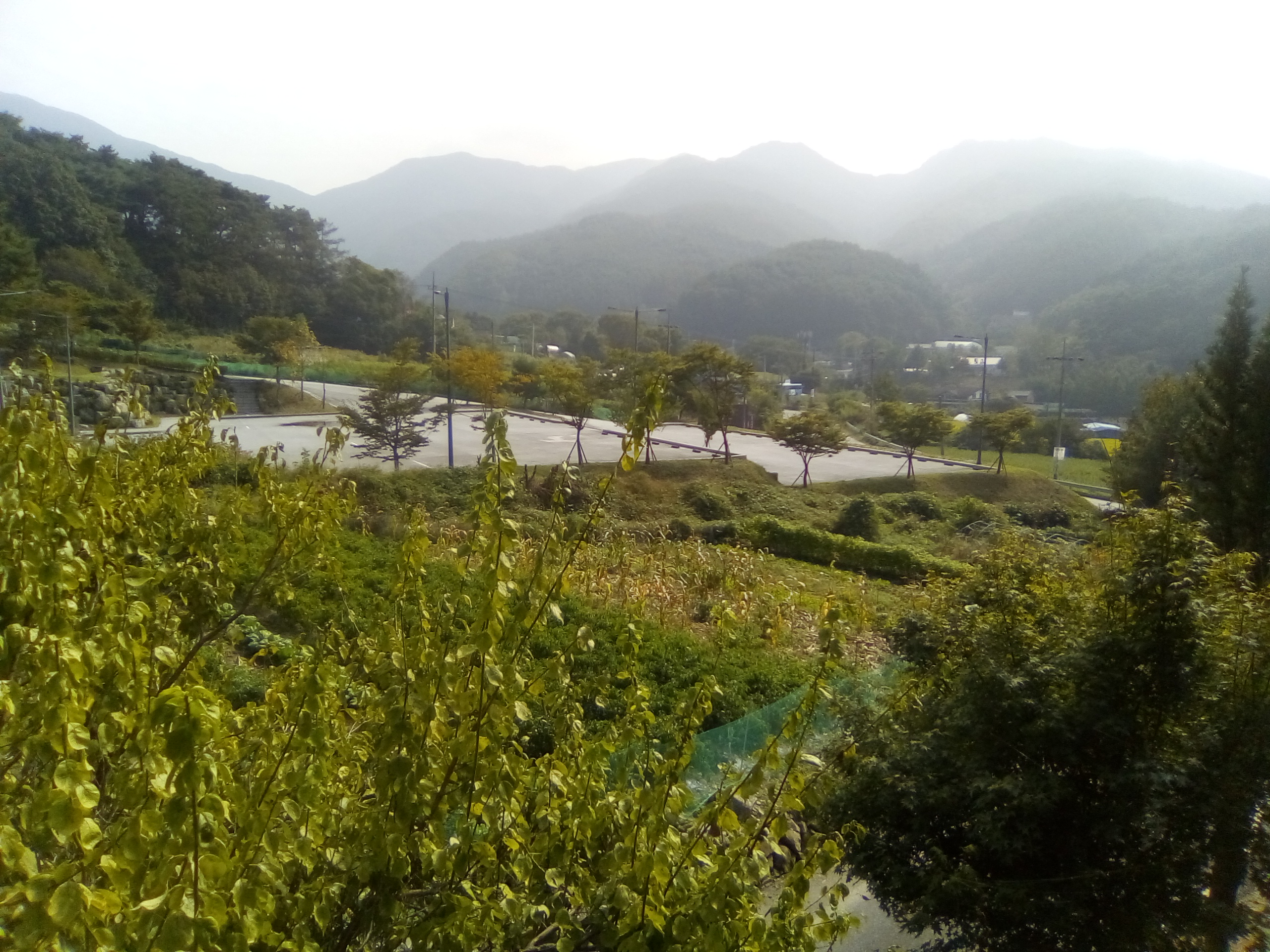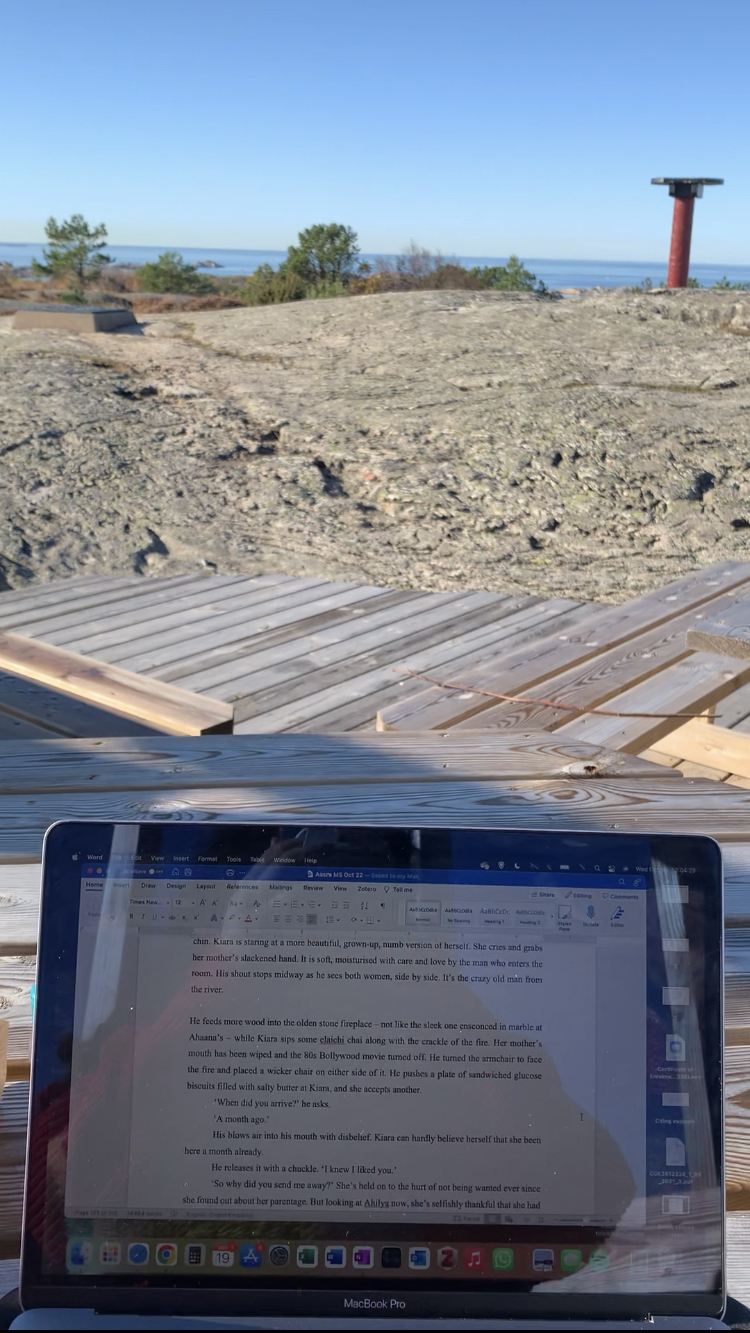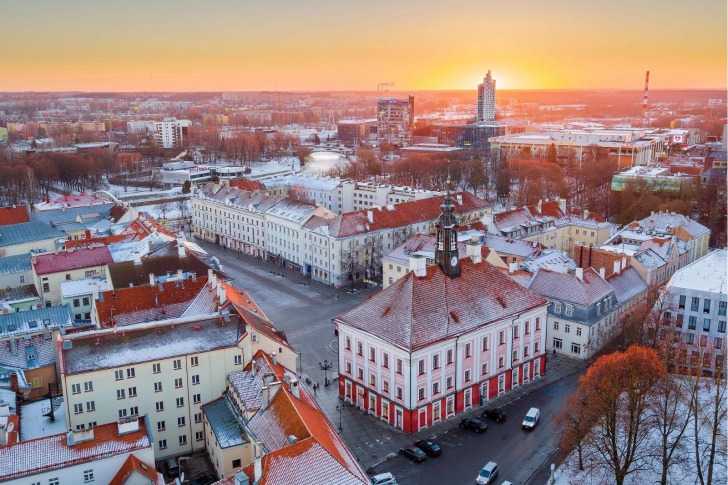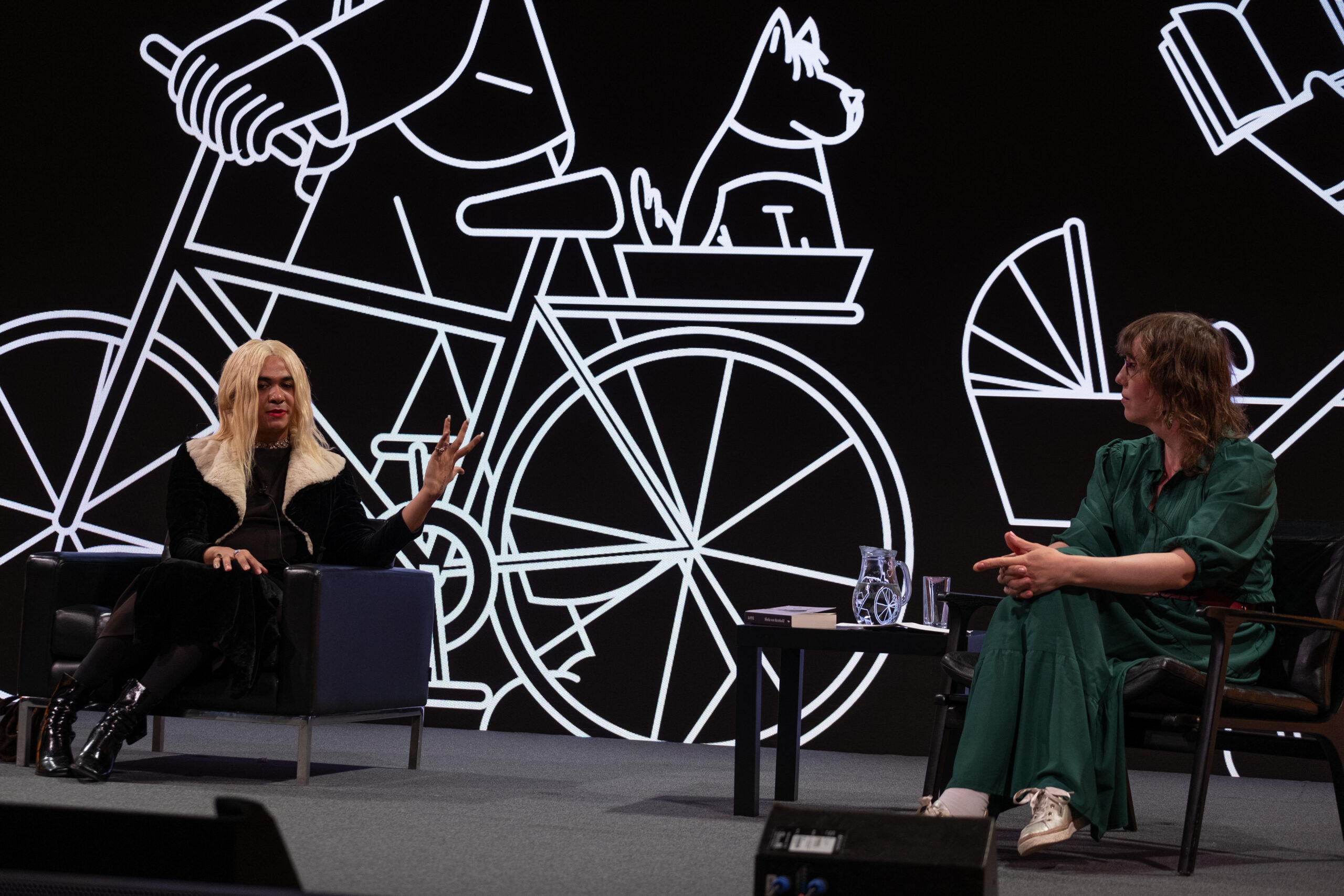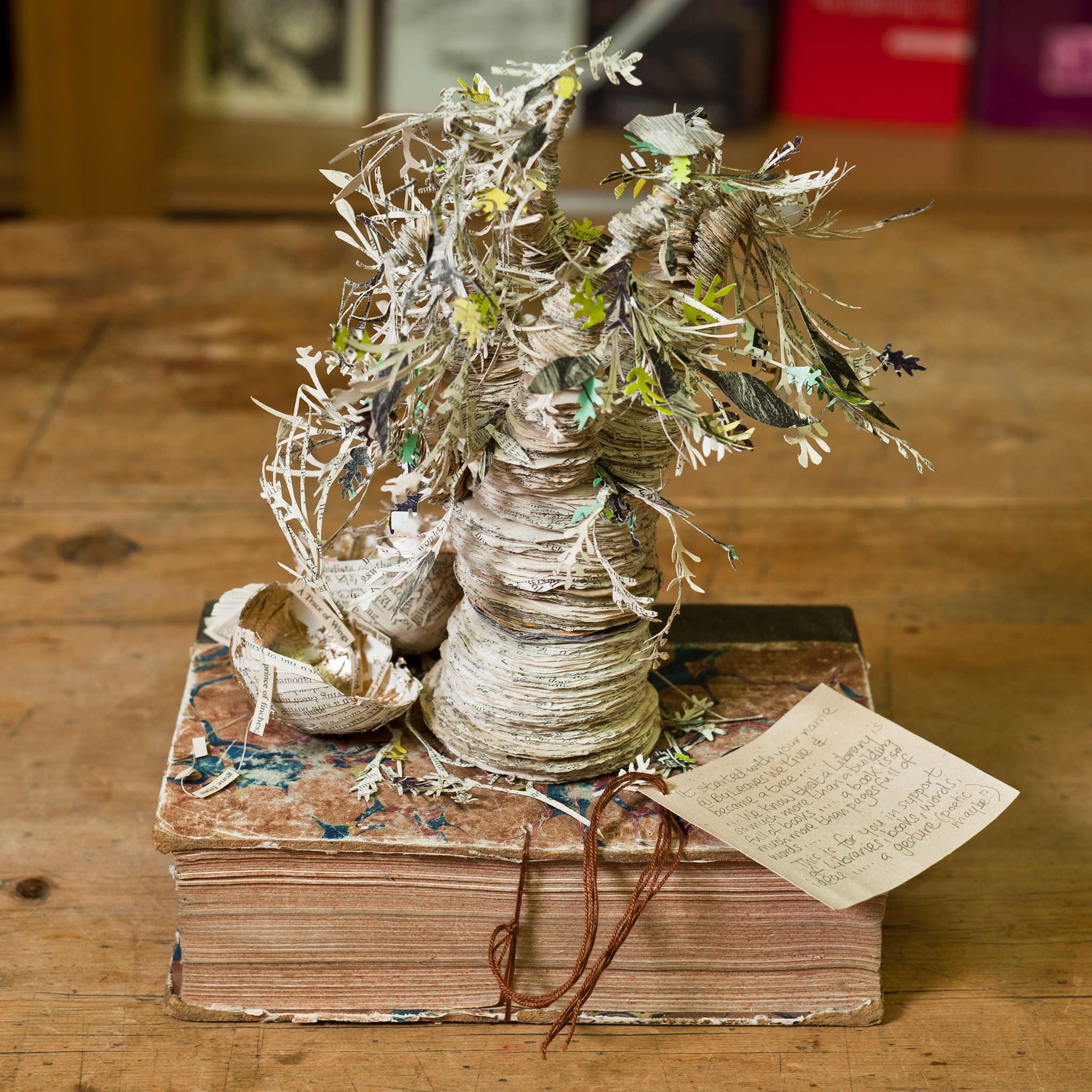My Gothenburg AIR Literature Library Writing Residency

By Sonali Misra
What is significant to us is finding ways for people working in literature across Edinburgh and Scotland to use our network of Cities of Literature to support growth and develop their craft. Edinburgh-based author, Sonali Misra, went out to Gothenburg for a four week residency to complete her novel. You can read below about the benefits of the UNESCO City of Literature residency programme.

Alice Carr
Communications
Edinburgh City of Literature Trust
21 February 2023
In October 2022, I went to Gothenburg, Sweden, on a four-week writing residency to complete my political adventure fantasy novel, Aasra. I remember the moment I found I’d been chosen for the residency – I was on the number 23 bus, returning from my weekly counselling session, having cried my eyes out about something particularly upsetting that day. As the bus turned towards The Mound, my inbox pinged, and my eyes scrolled the words expecting another rejection. When ‘congratulations’ showed up instead, I immediately called my family with the good news.
Don't be scared to apply
I apply for dozens of opportunities every year: part-time work, writing residencies, writing awards, publication opportunities, mentorships – the list goes on. As someone who’s been on the other side of the judging process, I know there is no exact science to it. It boils down to the person’s tastes and opinions, biases (unconscious or not), and even whether their egg yolk split that day or their WiFi acted up during a Zoom meeting. But the only way I can win something is if I apply. I would love to say that I’ve become hardened to rejections, that I don’t take them as a critique of my self-worth and abilities – but I try not to lie. It’s still tough, though I lighten up by replaying what my father tells me with a laugh in these scenarios: leave something for others; you can’t win everything.
This time around, he and I could both relish in my successful application. I came across the residency in the Literature Alliance Scotland newsletter, which redirected me to the Edinburgh City of Literature Trust website and then to the Västra Götalandsregionen website that contained the online application. This residency was a first for the region, something they wanted to do as Gothenburg became the latest UNESCO City of Literature. The residency offered to host ten writers and/or translators from other UNESCO Cities of Literature for four weeks at different spots in the region. The application was pretty short and sweet. It asked my top three preferences for the residency, a short bio, what I wished to accomplish during my time in Sweden, and a CV. Having grown up in Delhi, India, I’m used to big cities and thus explored the Gothenburg residency as opposed to the ones in nearby towns and villages. The Gothenburg residency appealed to me as its host organisations were two local libraries and included an opportunity for the writer-in-residence to conduct an event in conjunction with the libraries. I have always been fond of libraries and have had successful collaborations with them before, such as winning The National Library of Scotland’s Fresh Ink programme in 2020, through which my commissioned personal essay was added to the Library’s archives. I knew this – combined with my experience of designing and facilitating writing workshops – would make my application eye-catching. Later, when I arrived in Gothenburg and was taken out for a lovely Swedish meal by my two points of contact, Martin and Marcus, an event programmer at the City Library and a librarian at the World Literature House, I asked why they chose my application over others’. I was especially curious because the application didn’t ask for a writing sample, so, for all they knew, I could’ve been a terrible writer. They informed me that the City of Literature Trust team had shortlisted three applications for them both to peruse, and I was the only one whose work could be easily Googled. I actively share my writing and publishing news on Twitter and Instagram, I’ve created an author website that I regularly update, and my writing can be found on e-commerce websites. Plus, everything in my CV could be backed up by their search too, so they felt reassured that I would achieve the aims I had laid out in my application.
Writing becomes a day job
After settling in that evening in the impressive one-bedroom flat my hosts had organised for me in a lively neighbourhood in the city centre, I began work on my novel Aasra. I started writing it in 2017 during my MSc in Creative Writing at The University of Edinburgh. At the end of the degree, I had written about 40,000 words.

I kept the novel aside to work on other projects: a nonfiction book 21 Fantastic Failures: and what their stories teach us (2020) and a PhD research in Publishing Studies at the University of Stirling, where I’ve been examining the postcolonial impact of the British publishing industry upon the Indian one along with India’s writers and readers due to a few business practices. For this residency, I took a month off from my research to dedicate to my creative practice. I treated the residency like a day job; from Monday to Friday, I went to a library – alternating between both weekly – to write.
Share your writing journey with international writers
Some days I wrote 3000 words, others I wrote 800. By the end of the four weeks, I had written 30,000 new words and thus crossed the 70,000-mark in the first draft of my novel. I arrived at the scene where my protagonist finally meets her nemesis – something I’ve been building towards for years in my head – and the ensuing dialogue I typed was stilted, cheesy. That’s when I knew I had exhausted my brain and must stop. Although I didn’t finish the full draft at the residency, I am satisfied with how much and what I wrote. I excitedly shared this news in my last week in Gothenburg at a celebratory dinner we had with the host organisations and other resident writers. That evening will stay with me, because I got the chance to interact with writers and translators from diverse backgrounds and countries such as Spain, Germany, Iceland and Indonesia and gush about the fantastic journey all of us were on.
International base-rate writing fees
While discussing writing, we often paint the writer as someone who pursues it only for the sake of art, as if economics don’t play a role. Yet, writing is a career, so let’s get down to the brass tacks: money. As a partly funded international PhD student, the scholarship of 20,000 SEK (approx £1600) and the paid accommodation offered by the Swedish residency was not only attractive but necessary, especially in the expensive Scandinavian country. I eventually did two events for the libraries: one writing workshop at the World Literature House and a presentation about my PhD research for local Gothenburg publishers, and I was paid SEK 7500 (approx £600) for each. The Live Literature fee that the Scottish Book Trust recommends is £175 for a one-hour author event, and it’s something that many arts bodies still cannot afford (or do not offer) at panel events or book festivals. In contrast, SEK 7500 is the standard fee for events that the Gothenburg libraries run, and it made me consider the impact that government policies and funding can have on the arts. Not only did the libraries boast calendars filled with varied, mostly free events, for which authors were well compensated, but I have also never seen libraries like I did in Gothenburg.
Experience libraries in fascinating cities
The City Library, for instance, has retained its original structure with the renovations and additions enhancing the space for practical use. It includes an indoor amphitheatre for talks, and I attended a fascinating presentation on language diversity by a US professor the day I began writing at the Library. The children’s reading rooms are designed in bright colours with fun furniture for different age groups, and not a day passed when I didn’t see parents with their young children using the spaces. Near it lies a lovely magazine reading nook with comfortable chairs that always seemed to be occupied, mostly by the elderly. The basement includes a podcast room, a video editing room and a music room, next to a formal theatre. I worked on the top floor with the staff; I told my hosts that I required quiet to write, so at both libraries I was given my own cabin, although everybody else worked in open office settings. Gothenburg weather is close to Edinburgh’s, so on the days it didn’t rain, I took a ferry to the nearby archipelago to hike and write or walked about in Gothenburg’s gorgeous greens, writing and spending my breaks seeing the park’s penguins and seals.It's cities apart from the routine, and yes, can happen
Since returning to Edinburgh, I’ve again paused work on my novel to complete my thesis as I’m in its last writing-up stage. Back in my routine, I must sometimes convince myself that the residency actually happened. For anyone who’s hovering their mouse over a similar application link, I say: if you have the time and headspace to apply for opportunities – as miniscule as the chances may seem – do it. But know that your work will have to be self-driven; you must engender the initiative to write and meet your targets. While being active on social media may not be everyone’s cup of tea, an online record of my projects and publications definitely helped me. I zeroed in on the Gothenburg library residency and the relevant expertise I could provide that would set me apart from others. So, whenever you send an application, whether it’s for a residency, a job, an award or anything else, sell yourself and the unique combination of skills and knowledge you offer. And remember: don’t be fooled by all the success stories you see on social media; those are the few wins from a slew of rejections all of us face. That’s why I always share a ‘rejection tweet’ to reflect my actual ratio of wins to losses. But when I do win, it makes everything else worth it.


